Outdoor products made from recycled PET bottles
Reusing instead of throwing away saves resources, protects our climate and thus makes the world a little more colorful every time. If you go through the world with this in mind, even waste becomes a resource. A resource that offers an incredible number of possibilities. For years we have been discovering new ways: PET bottles are recycled and turned into insulation, padding, fleece or polyester yarn. From summer 2024, we will also use hard plastic parts made from recycled PET for the first time. Compared to new production, we can almost halve the impact on the environment with recycled materials.
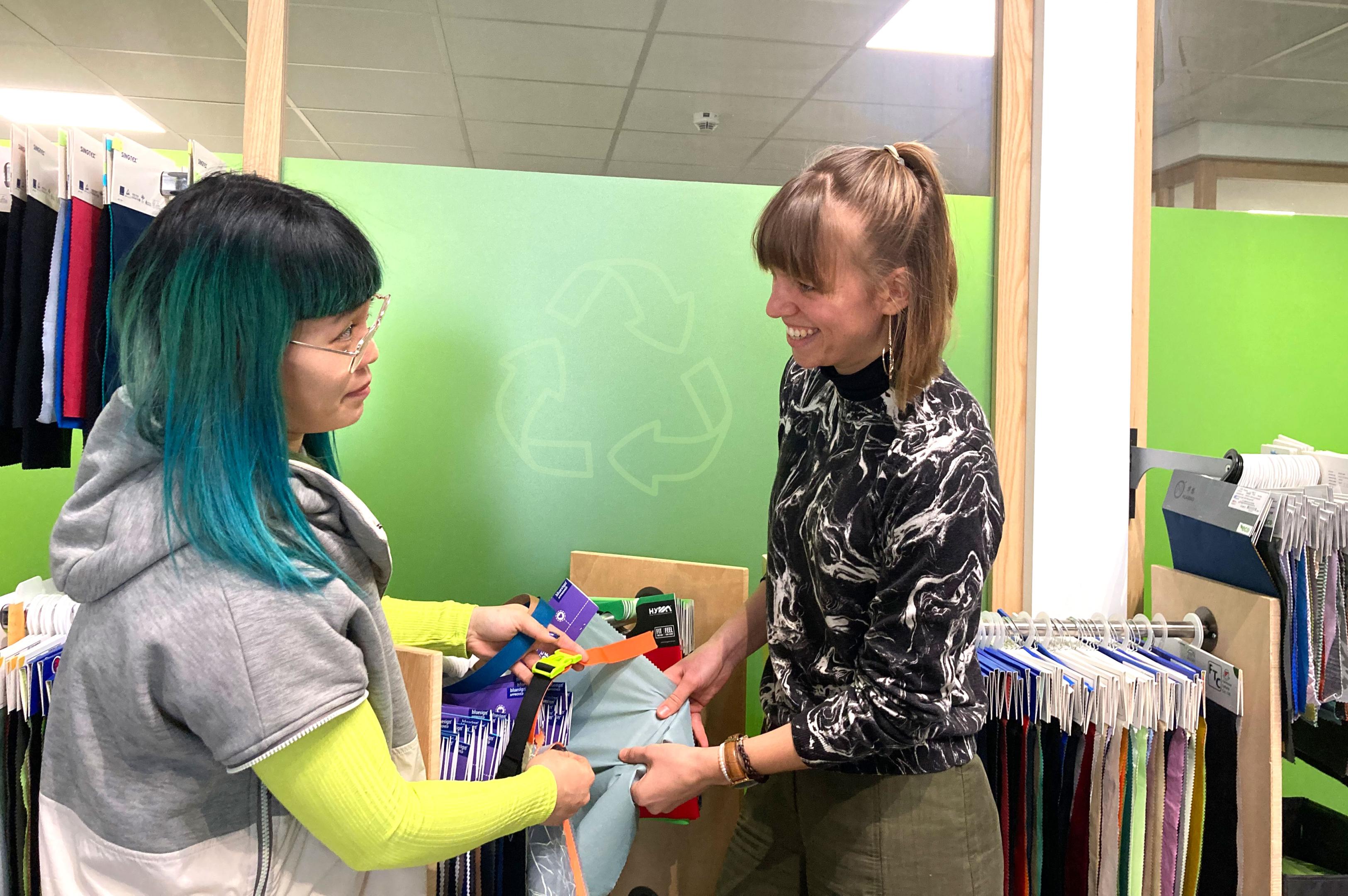

Using the resource "waste" as a valuable recyclable material already saves over 700 million tons of CO2 emissions worldwide. By 2030, this figure could rise to around one billion. It is an important signal to society and against the throwaway culture in this world. In the article, we explain the benefits of PET recycling to you.


"By 2024, we want to manufacture 90% of our products predominantly from recycled or bio-based materials. This will enable us to significantly reduce CO2 emissions from material production."
Around 500 billion PET bottles are sold worldwide every year. No wonder, since they are available everywhere and are really practical. They are lightweight and virtually unbreakable. If we were to line up these 500 billion bottles along the equator, there would be enough to circle the earth once every two hours. 40.075 kilometers of plastic bottles every two hours! Most PET bottles are disposed of. Unfortunately, many also end up in nature, on landfills or are incinerated - this is referred to somewhat euphemistically as thermal recycling.
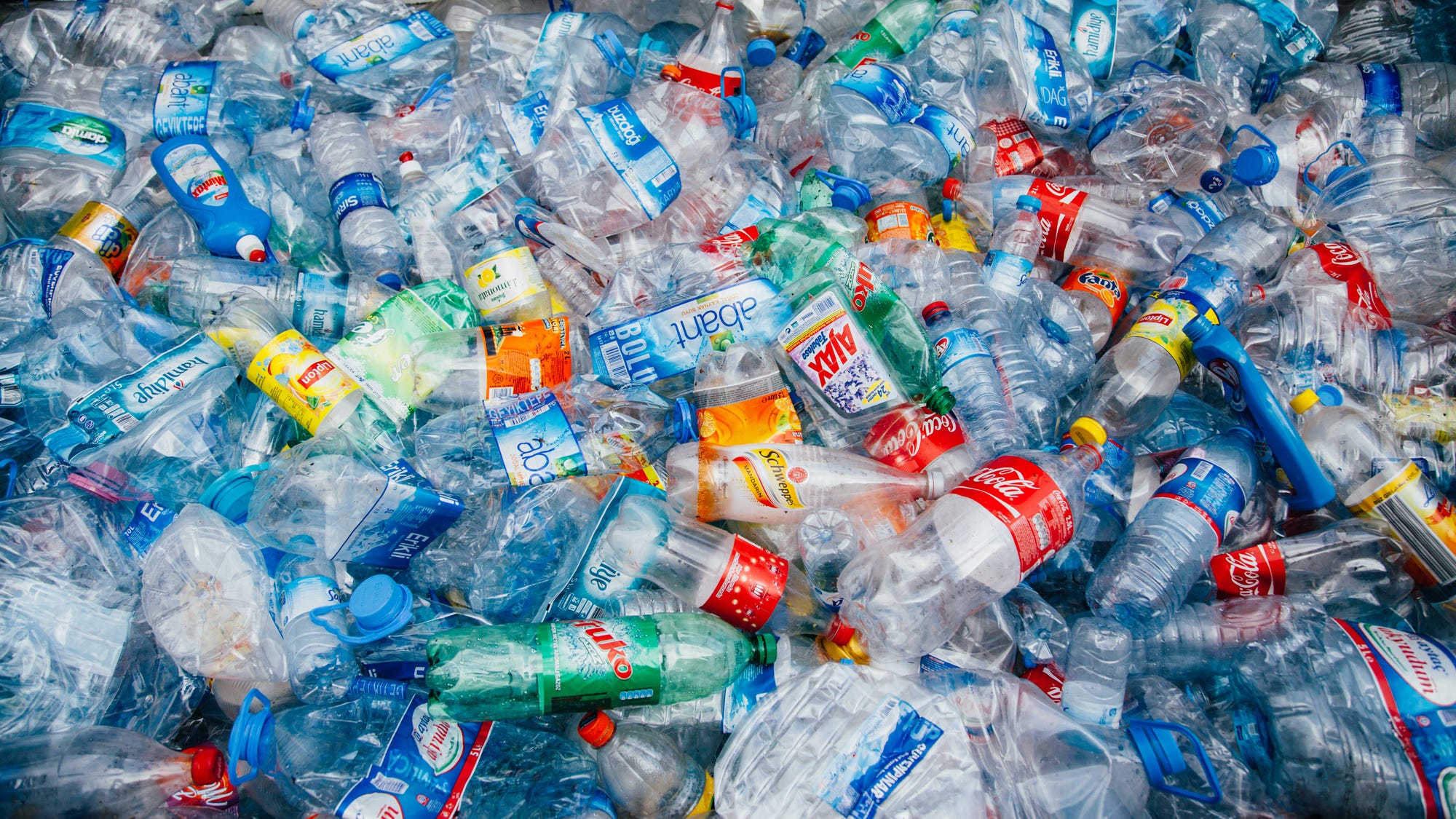



"The more recycled materials we process, the less fossil oil is used to produce new synthetic fibers. This saves us up to 50 percent energy in the manufacturing process and further reduces our carbon footprint."
How mechanical recycling works
To reuse the polyester of plastic bottles so well, a so-called mechanical recycling is used. Unlike the chemical recycling, the mechanical variant is not a pioneering technical work, but still highly effective. The basic principle is simple: first, the plastic bottles must be collected. In Germany, this works very well thanks to the deposit system. In a recycling plant, they are then sorted by color, freed from other materials (e.g. labels), shredded into flakes and cleaned. The resulting PET flakes are then melted down and processed into granules, which serve as the starting material for all further applications.
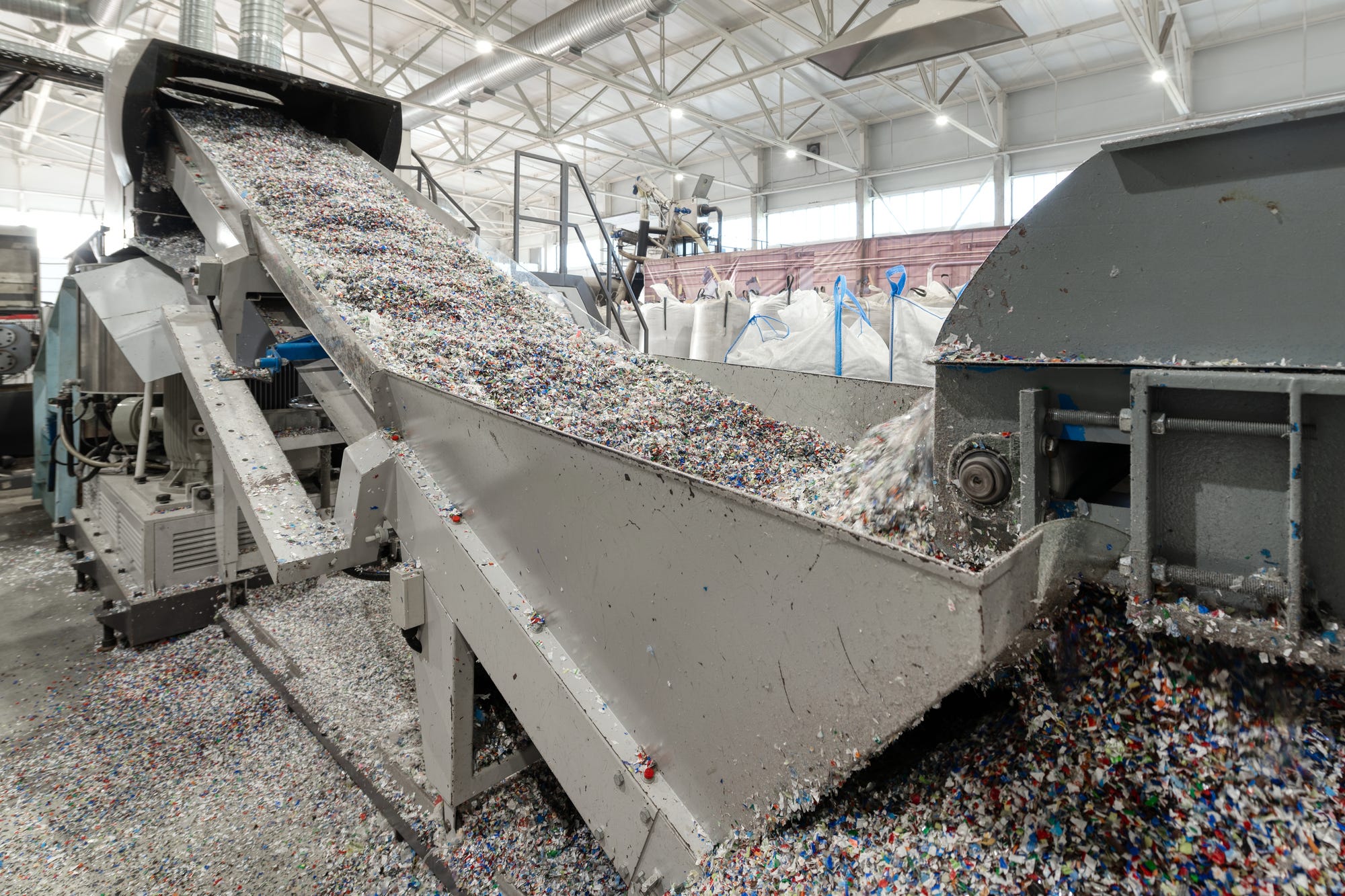

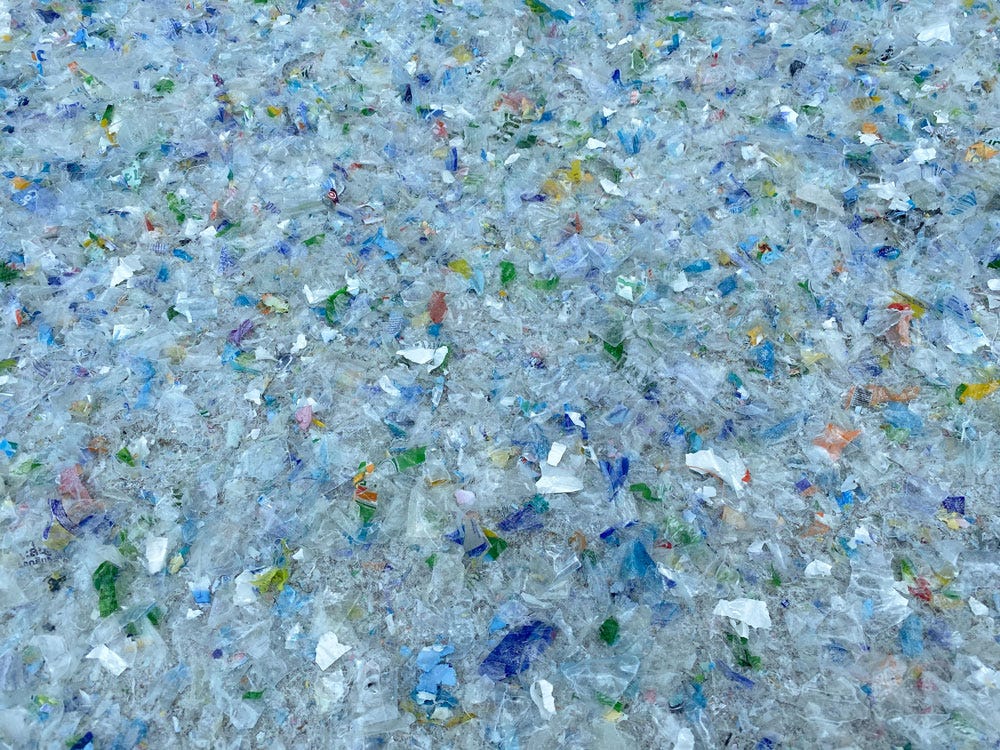

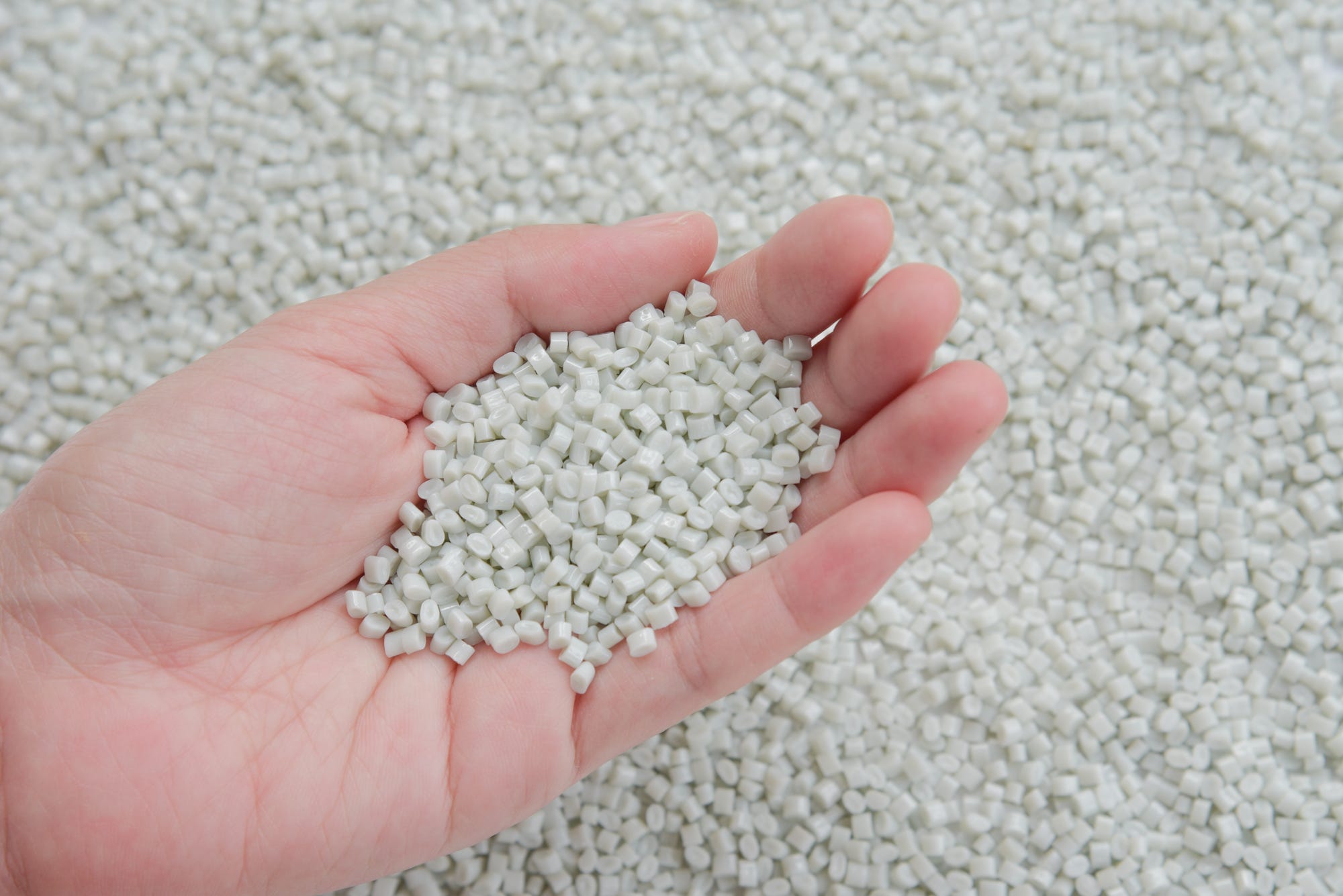

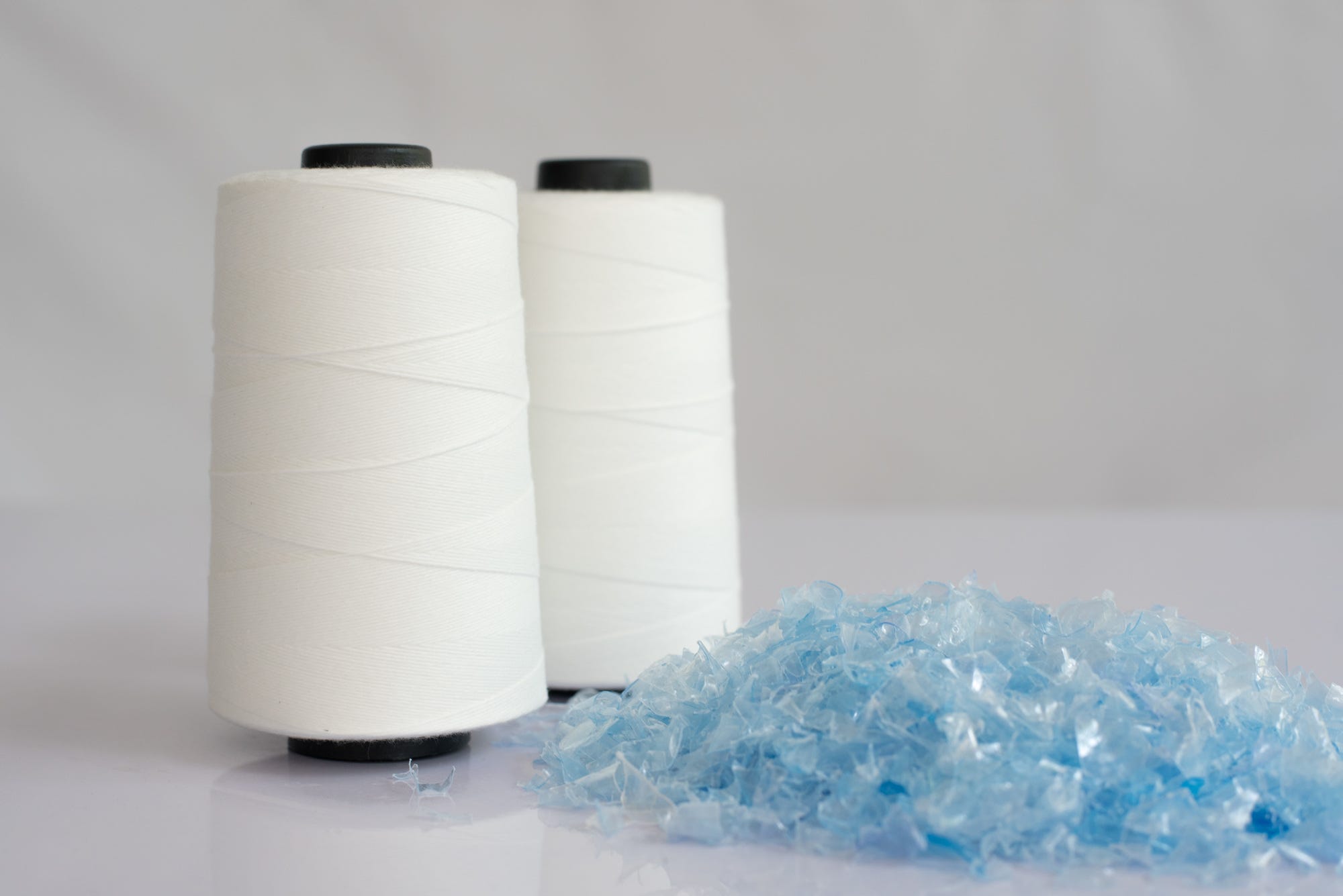

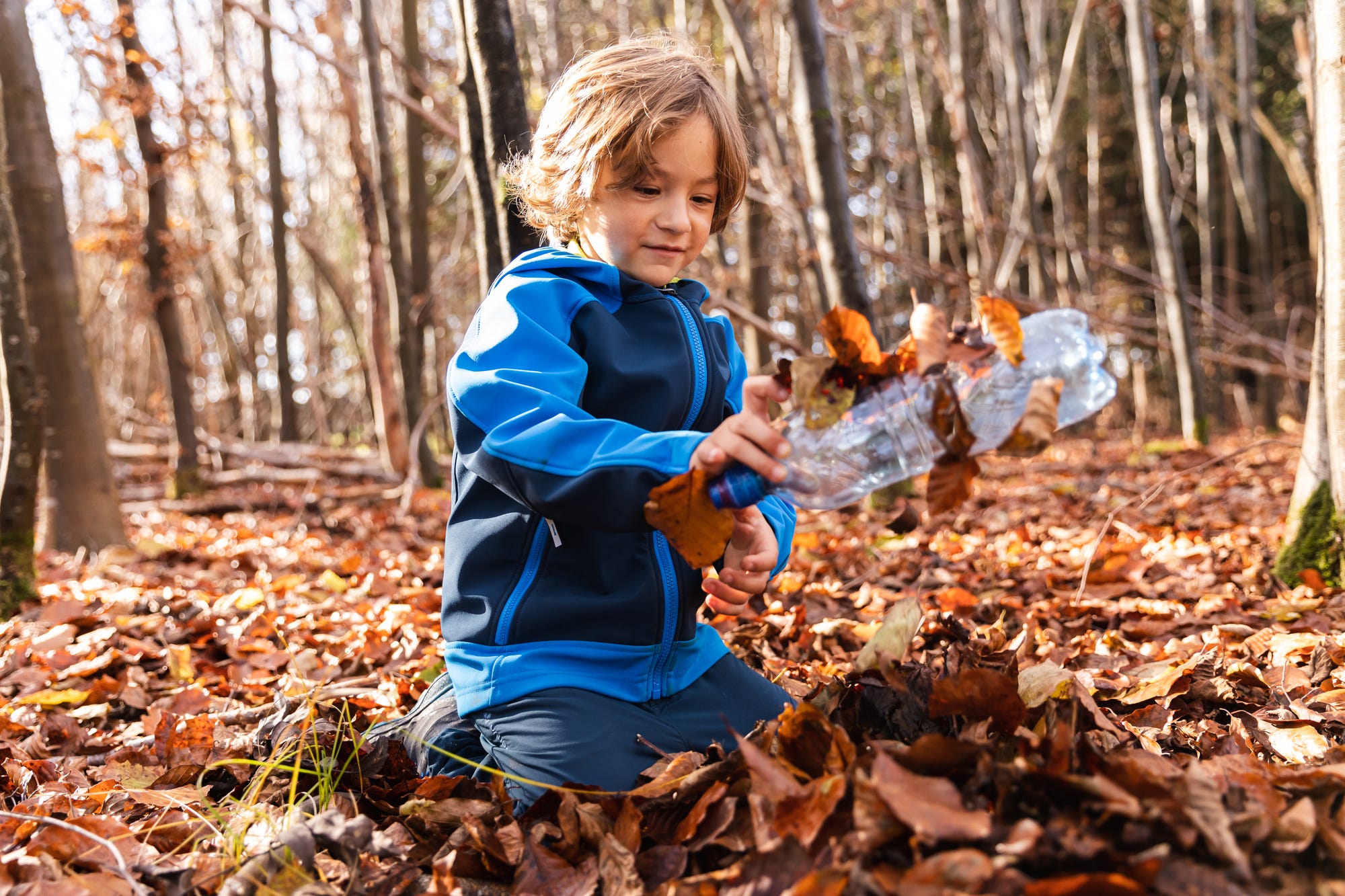

In the case of functional outdoor clothing, for example, fleece or insulation fillings for jackets are made from it. To produce classic textiles, a high-quality polyester yarn is spun from the granules. At VAUDE, we process the fabrics woven from it into bags, pants, jackets and other products.


"One jacket then contains the recycled PET from about 15 plastic bottles."
Best of all, the products made from recycled bottles feel just as good as those made from virgin raw materials. Only experts in the lab can distinguish the recycled polyester from fabrics newly produced from petroleum. In contrast to chemical recycling, the chemical structure of the plastic is not changed by the melting and forming process. This has the advantage that the process consumes relatively little energy. On the other hand, it has its limits: Since in practice a tiny amount of impurities always remains, PET cannot be melted down and reprocessed as often as desired. In mechanical recycling, the entire process determines the possible end product: the purer and cleaner the waste that the recycling plant processes, the better the quality of the granulate and consequently of our polyester yarn.


How different Recycling processes complement each other
The proven process and the inconceivable amount of available plastic bottles as a resource have contributed to the fact that PET recycling has had a permanent place in our product range for several years now, and is constantly being added to. From 2024, we will also be using zippers made from recycled PET. However, on the way to a greater proportion of recycled and bio-based materials, we are reaching our limits. We cannot cover all product areas with polyester and natural fibers alone. For many products, we rely on polyamide for the sporty function. This is where chemical recycling comes into play. In a new process, from old car tires polyamide is produced. So the two recycling processes complement each other beautifully. The mix allows us to conserve more finite resources and further reduce our CO2 emissions for climate protection.
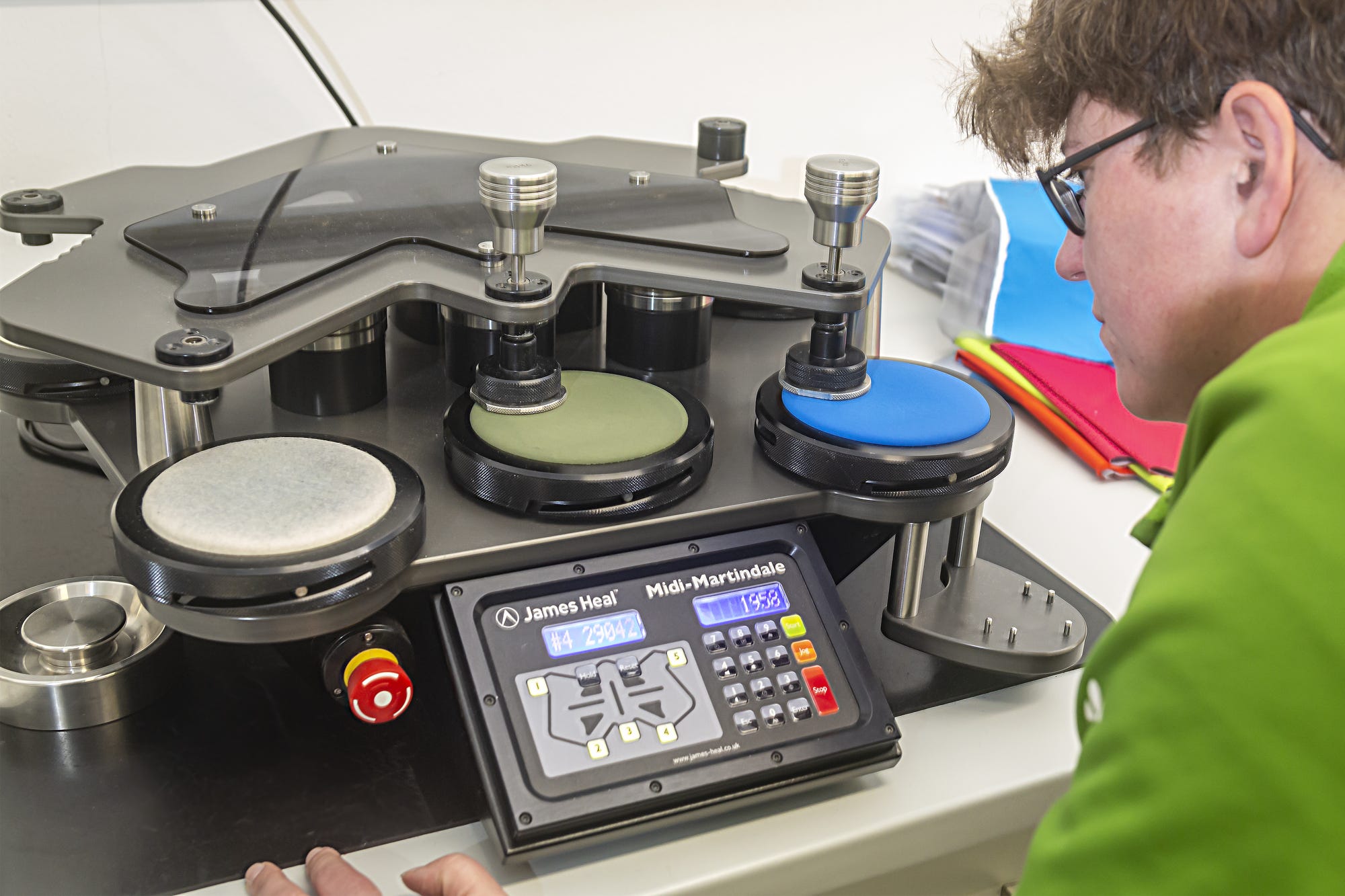

We no longer need crude oil to make good synthetic fiber. Almost none, anyway. PET recycling reduces a global waste problem and is an excellent alternative to fossil resources for products made of polyester. As we move toward a more sustainable economy, it's one of our most important tools. In the end, discarded plastic bottles become new outdoor gear while making a valuable contribution to the environment.




